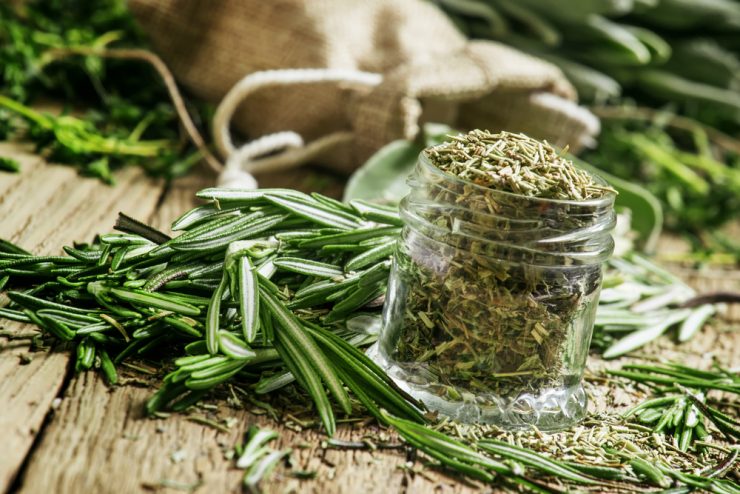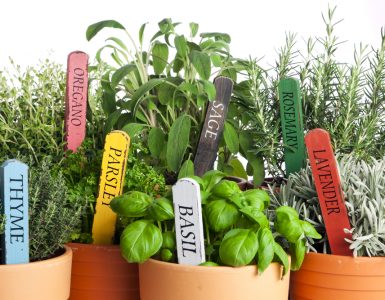Rosemary, Rosmarinus officinalis is a pretty aromatic herb from the Mediterranean, much prized both in the herb garden and in the kitchen the world over. Its name from the Latin ros marinus, meaning dew of the sea, is thought to derive from the fact that it was often found growing in coastal areas. Rosemary is now known and grown throughout the world and is highly valued in herbal medicine, cooking, cosmetics and as an ornamental shrub.
Vast, spreading clumps still grow wild on hills in France, Spain, Hungary, Italy, Greece, Tunisia, Algeria, Morocco and Corsica. Growing up to 5ft height, it has thin, dark green, needle-like leaves and pale-to-dark blue flowers in summer with a fresh piny scent.
Memory aid
Rosemary has long associations with memory, most famously in Shakespeare’s Hamlet where Ophelia hands Hamlet a sprig asking him to remember her: ‘There’s rosemary. That’s for remembrance: pray, love remember.’ In ancient Egypt rosemary was placed on coffins for remembrance. In ancient Greece scholars wore sprigs of the herb around their necks during exams to boost memory and help them focus.
The modern equivalent is to dab a few drops of the essential oil onto wristbands or a hairband. It can also be used in burners and diffusers to aid concentration and alertness.
More recent research[i] suggests that essential oil of rosemary may indeed improve our recall, especially long-term and so-called ‘prospective’ memory that we use to remind us to do things. The reason? Rosemary is packed with various potent plant chemicals which are thought to act on messenger chemicals involved in memory.
In the kitchen
Whether fresh or dried, Rosemary adds a bold flavour to many Mediterranean dishes, being especially popular in Italy. It is also a key ingredient in bouquet garni (a bundle of herbs tied with string used to flavour soups, stews and casseroles) and herbes de Provence (a mixture of dried herbs typical of the Provence region in Southern France).
Meanwhile, whole sprigs are steeped in vinegar or oil and used to flavour sauces and salad dressings. In northern Europe and other westernised countries it is a popular flavouring for meats, especially roast lamb, as well as soups, sauces, stuffing, marinades and stews. Small amounts can also be finely chopped and added to breads, cakes and biscuits.
Fast Fact
Australians still wear rosemary on Anzac Day, their national day of remembrance, as a mark of respect for their soldiers lost in World War 1.
For more on the health benefits of rosemary see the Rosemary Fact File
[i] www.ncbi.nlm.nih.gov/pubmed/29389474?























Add comment